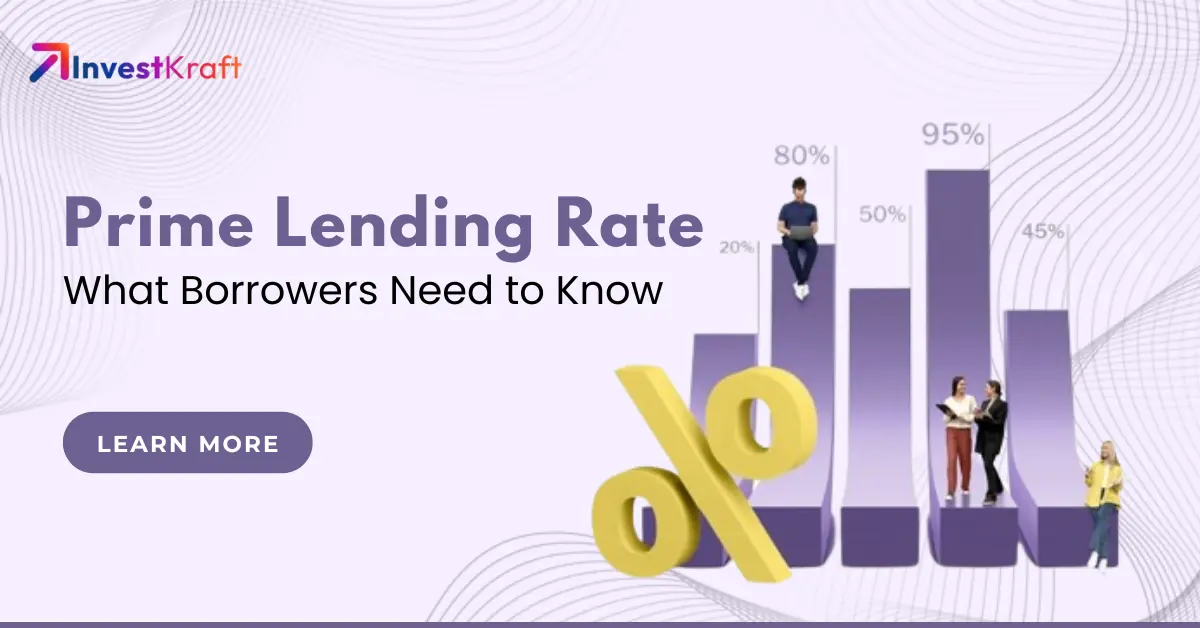Comparing Business Term Loans and Working Capital Loans: Which is Right for You?

The distinction between term loans and working capital loans is examined in this article. Term loans for businesses, known for longer payback terms, larger loan amounts, lower interest rates, required collateral, and complicated documentation, can be repaid over 1 to 5 years. Working Capital Loan vs Term Loan: Working capital loans, used to fund maintaining and managing a firm, have a shorter payback period not exceeding 12 months. Key characteristics include restricted EMIs, shorter payback terms, lower loan amounts, higher interest rates, and optional collateral. Depending on the needs of the consumer, the best funding solution may be determined.
Loans and businesses are tied to one another. Almost all businesses, no matter how big or small, occasionally need money to fulfil and complete financial commitments, such as supporting ongoing operations, paying employees and rent, etc.
A loan is an excellent way to get money. Two of the most common and easily accessible types of business loans for people are term loans and working capital loans. This article will discuss several characteristics of both loan kinds and discuss how they differ from one another depending on certain criteria.
What is a Business Term Loan?
A business term loan, often known as a term loan, is a type of business loan with a payback period of 1 to 10 years. Most firms use it as one of their top financing options anytime they need money to cover expenses associated with their operations.
The bulk of business loans are obtained by owners for capital expenditures including equipment upgrades, business development, and asset purchases.
Customers must put up security as collateral to obtain the loan amount under a business term loan, which is both a secured and unsecured loan. Additionally, it is accessible for a variety of terms, i.e., as short-, medium-, or long-term loans.
What is a Working Capital Loan?
A working capital loan is a brief loan with a repayment period of three to fourteen months. Whether they are regular operational expenditures or any other kind of funding requirement, the majority of people choose working capital loans to pay the costs of running and maintaining a business.
Companies and organizations may choose to obtain a working capital loan to pay staff wages, office rent, or other forms of everyday expenses.
Repayment on time is one of the most important requirements for a working capital loan. As a result, companies in need of finance can choose working capital loans whenever they choose. Companies and organizations can get the right amount of loans depending on how much money they need.
Difference Between Business Term Loan and Working Capital Loan
Look at the following table for an easy understanding of how business term loans differ from working capital loans.
| Parameter | Working Capital Loan | Term Loan |
| Repayment Tenure | Loans for working capital have a shorter maturity or payback duration. It is not longer than a year. | Business term loans include repayment terms ranging from one year to five years. |
| Loan Amount | The amount that lending institutions sanction for a working capital loan is often less. | Comparatively larger borrowing amounts are available with business-term loans. |
| Rate of Interest | Since working capital loans are a type of unsecured loan, they feature higher interest rates. | As compared to other types of loans, term loans feature lower rates of interest. |
| Loan Type | Loans for working capital have a short-term | Long-term loans include business-term loans. |
| Purpose | Any company organisation that needs operating capital can get loans to offset such costs | Term loans are used by people to pay for expansion, the acquisition of new assets, and other business-related costs. |
| Eligibility Criteria | Loan eligibility requirements are less strict for working capital loans. | Those who want term loans must meet strict eligibility requirements to get money. |
| Paperwork | Working capital loans don't require extensive documentation or drawn-out processes to be chosen. | The approval of term loans requires a tonne of documentation and protocol adherence. |
| Collateral | Loans for working capital don't need security. | People must put up security as collateral for term loans. |
| Types | Account receivables loans, business credit lines, factoring, advances, etc. are a few typical varieties of working capital loans. | There are several different kinds of term loans, including short-term, long-term, and intermediate-term loans. |
| Credit Score | Loans for working capital do not raise the borrower's credit rating. | The borrower's credit score rises as a result of term loans. |
Which is better – a Business Term Loan or a Working Capital Loan?
Customers may take advantage of a variety of advantageous terms from both Working Capital Loans vs Term Loans, making it easier for them to finance regulated and efficient business operations. However, the needs of the consumer will determine which financing strategy is best.
If someone is seeking a funding source to support investment-heavy enterprises, for example, choosing a company term loan makes more sense.
However, it would be advisable to get a working capital loan if the business just needs a small sum of money to pay for regular expenses.
Additionally, prompt repayment of term loans, especially as the sanctioned amount is typically extremely high, may greatly enhance the business credit. Working capital loans, on the other hand, do not improve credit scores.
Therefore, people must decide on the reason they want a loan and the type of cash they want to acquire. After completing both, individuals may quickly apply for a loan through a reputable physical or online portal.
Can a business term loan can be used as a working capital loan?
The gap between a company's current assets and current liabilities is referred to as working capital. It alludes to the measurement of the quantity of cash on hand to cover daily expenses. When a company's working capital reserves are insufficient, it may have trouble continuing to operate properly or surviving.
Consequently, a company may choose a working capital term loan to improve its cash flow. Such a loan is typically used for temporary finance needs and is provided to firms based on their specifications.
How to Choose Between a Working Capital Loan and a Term Loan?
Choosing between a working capital loan and a term loan depends on what your business needs. Here is a breakdown of both options to assist with your decision-making process -
- Consider the purpose: When deciding between a working capital loan and a term loan, consider your purpose. A working capital loan is ideal for covering operational expenses and providing immediate cash flow. On the other hand, if you have plans for growth or need funds for a significant purchase, a term loan would be more appropriate.
- Evaluate your cash flow: Working capital loans provide fast access to funds but come with higher short-term repayment costs, while term loans offer a longer repayment period but may need a larger upfront investment. It is essential to carefully evaluate your cash flow and financial needs before deciding which option is best for your business.
- Creditworthiness: Lenders have more rigorous requirements for term loans because they involve larger sums of money. This is largely due to the higher risk associated with larger loan amounts, as lenders need to ensure that the borrower has the creditworthiness to handle the larger debt. Therefore, borrowers seeking term loans should be prepared to meet more stringent criteria to demonstrate their ability to repay the loan.
FAQs
Q1. Do I Have to put up property as security to get a working capital loan?
A. No, it is not essential to use a valuable as collateral to obtain working capital loans.
Q2. Are There Any Tax Advantages To Term Loans?
A. Yes. To receive tax benefits, people can deduct the interest on term loans as a business expense.
Q3. Do You Need a Guarantor To Use Working Capital Credit?
A. Working capital loans are unsecured forms of financing, therefore clients who choose to apply for one are not required to provide a guarantor to be approved for credit.
Q4. How Long Does It Take To Process a Term Loan?
A. Business term loans may be disbursed by lending businesses and institutions in as little as 60 days or up to two months.
The Conclusion
Corporate financing employs working capital and company-term loans in certain ways. Term loans provide businesses with larger loan amounts and protracted payback periods, which makes them ideal for long-term investments and development strategies.
On the other hand, working capital loans offer short-term funding, taking care of urgent operational demands and maintaining normal business operations.
Businesses that are aware of the variations in loan size, payback durations, use flexibility, and long-term ramifications may make informed decisions and choose the financing solution that best meets their specific aims and circumstances. By selecting the appropriate loan type, businesses may obtain the financing they want to grow and prosper in a competitive market.
Verify Phone Number
Related Post

Top Loan Schemes with Highest Subsidies in India 2024
Find the Indian loans with the highest subsidy easily with the help of Investkraft. This guide provi...
Read more...
Pradhan Mantri Mudra Yojana (PMMY) Loan: Eligibility, Application Form, Benefits
The Pradhan Mantri Mudra Yojana (PMMY) loan has been a game changer for small and micro-enterprises...
Read more...
How Does the RBI Regulate P2P Lending in India 2024?
P2P lending has grown significantly in India, becoming an important part of the financial ecosystem....
Read more...
Grace Period vs Moratorium Period: A Detailed Comparison for Better Financial Decisions
The terms “moratorium period” and “grace period” are often mistaken to have the same meaning. Howeve...
Read more...
List of Microfinance Companies in India 2025 – Small Loans & Financial Services
Microfinance in India has been rapidly expanding as a viable financial service due to the emergence...
Read more...
Understanding Syndication Loans: A Guide for Borrowers and Lenders
Loan syndication is a solution for borrowers seeking large loans that may be beyond a single lender’...
Read more...
How Does the Moratorium Period Act as a Life Raft for Borrowers?
Financial jargon, whether taking a loan or opening a bank account, can be confusing and tricky. Thes...
Read more...
New to Credit? Stop Worrying and Build Your Credit with These Essential Tips
Establishing and maintaining a healthy credit score can seem overwhelming, particularly for new borr...
Read more...
Prime Lending Rate: A Friend or Foe for Borrowers?
When purchasing items on credit, it is common to need a financial investment and many turn to loans...
Read more...
Instant Cash Loans: Everything You Need to Know
Have you ever been in a situation where you did not have enough money to make a purchase? Maybe you...
Read more...Reach out to our Experts if you have any Doubts
Like the best things in life, Consultations @InvestKraft are free
Drop a Mail or give us a Missed Call & Begin your Investment Journey here



